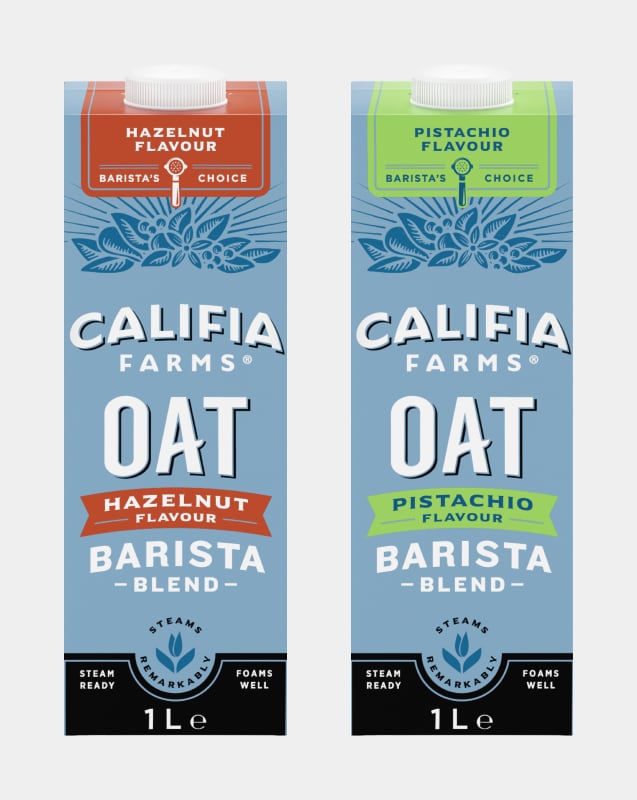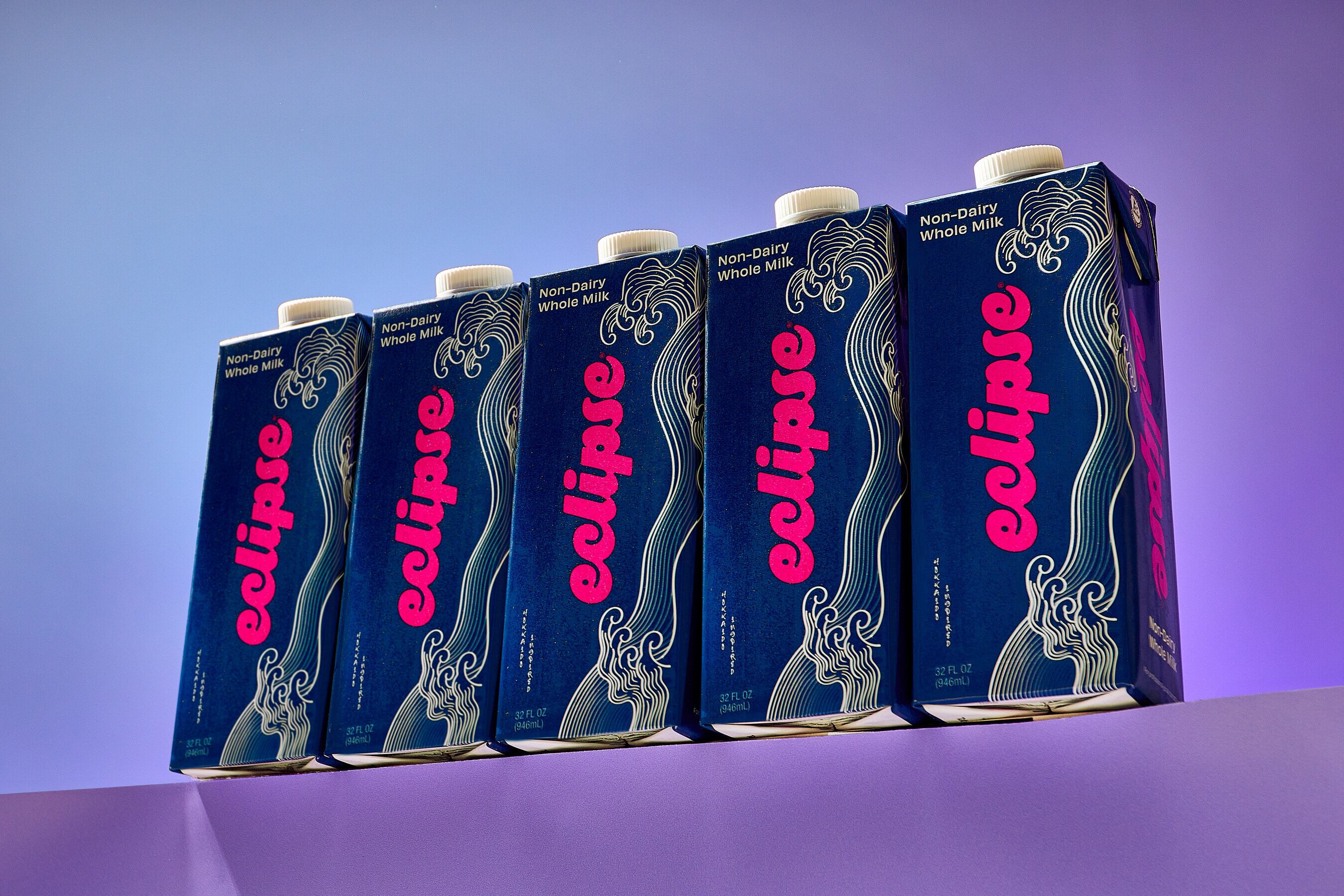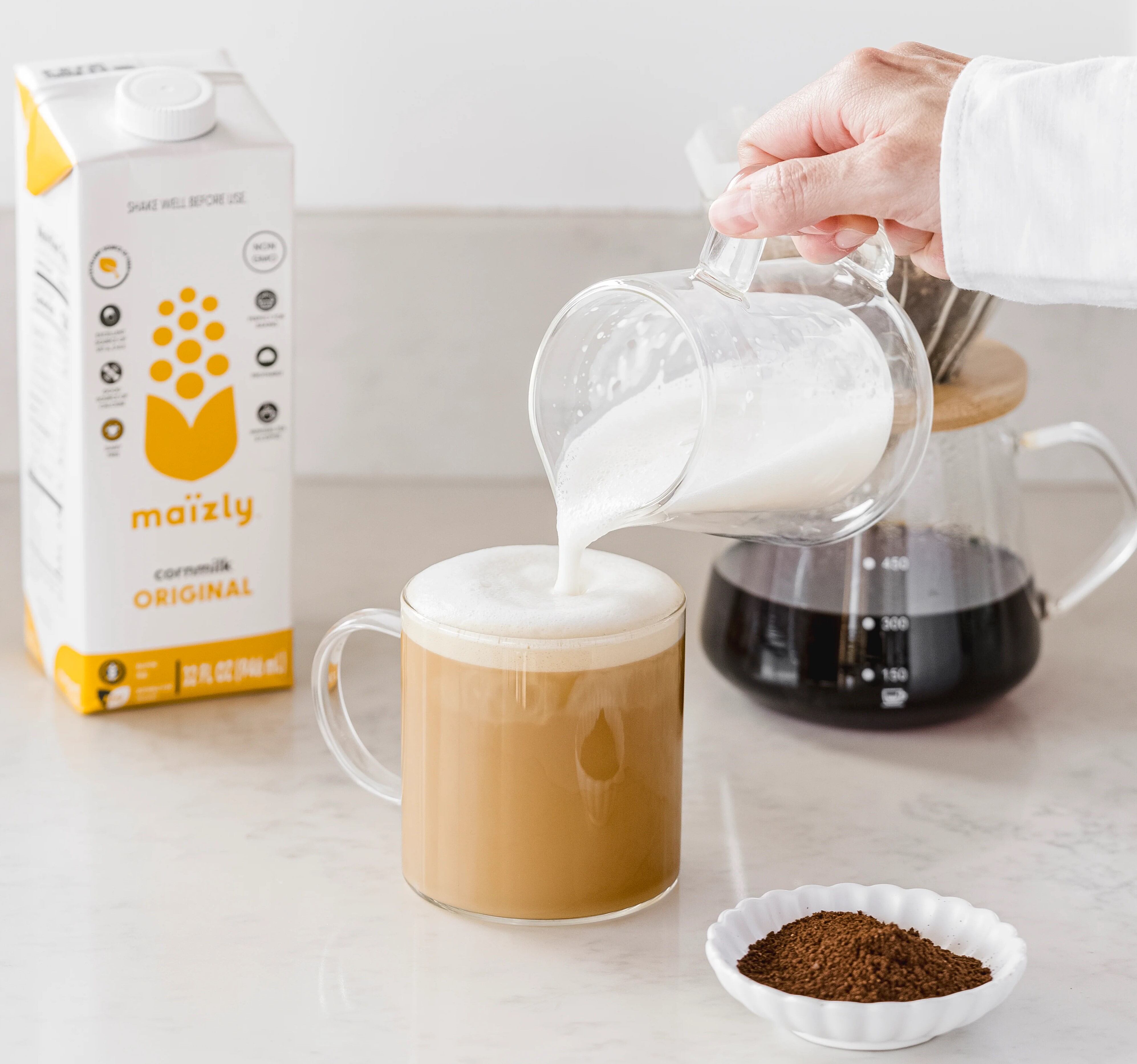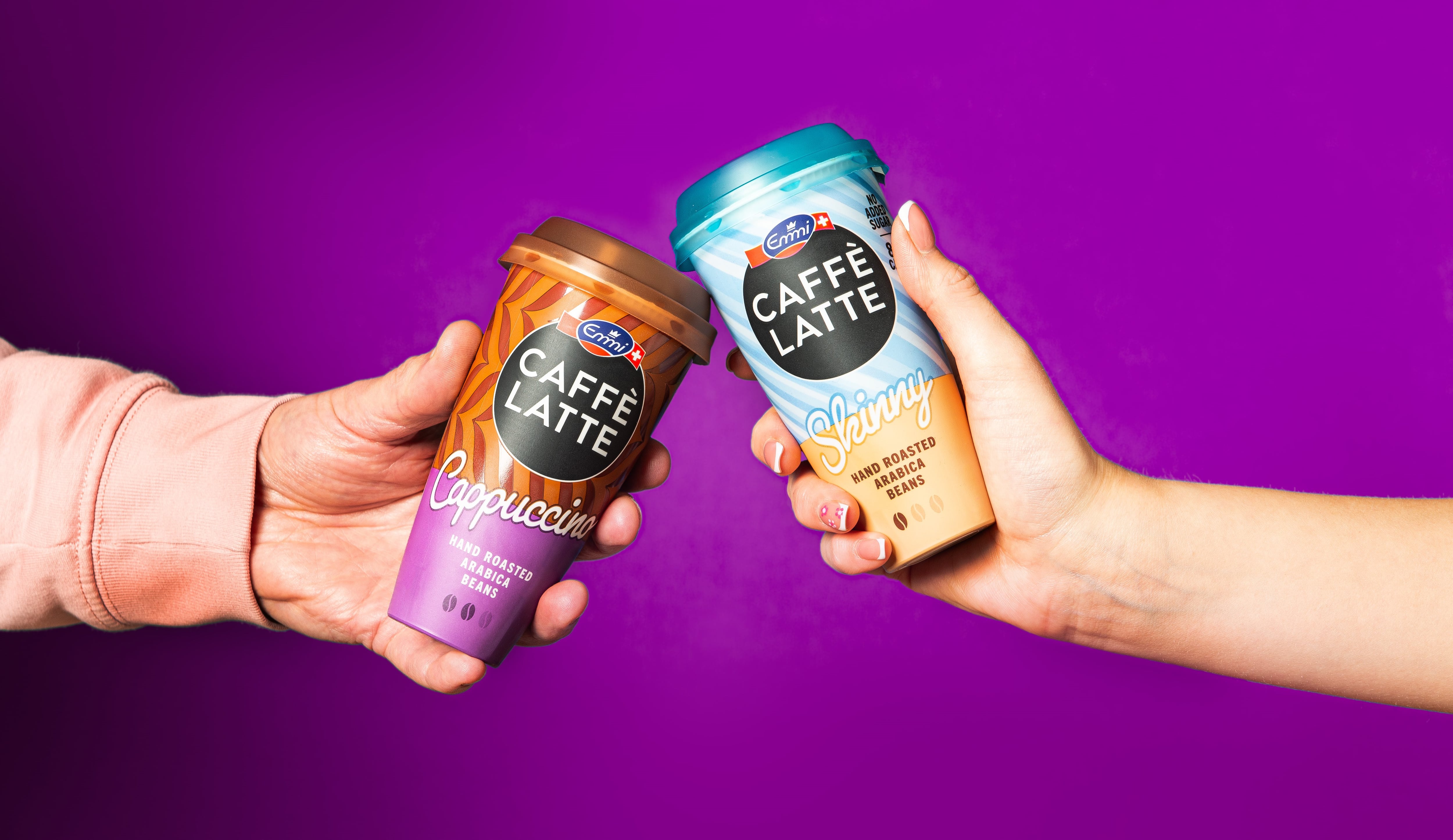Califia Farms is set to unveil two new Oat Barista flavors at this week’s London Coffee Festival, to be held at the Truman Brewery in London, UK.
We chat to Damien Threadgold, general manager UK & EU, about how innovation in formats and functionality is fuelling NPD at the company and the wider plant-based milks market – and round-up some of the latest barista-friendly plant-based milk NPD to grace the US.
But first, a look at the UK market . . .
The start of 2025 looked gloomy for the UK plant-based dairy category. Despite the annual Veganuary campaign – which aims to challenge consumers to eschew traditional meat and dairy in favor of animal-free alternatives – the volume of plant-based sales decreased across nearly all categories in January 2025.
According to Nielsen, plant-based cheese saw the largest declines in both spend (-25.6%) and volume (-30.6%) (NIQ Panel on Demand Homescan Latest 4 Wks – w/e 25/01/25) while spreads declined faster than traditional butter, spreads and margarine.
Regardless, plant-based beverages remain popular with British consumers, with around a third (35%) of households consuming plant-based drinks, according to Kantar. And more recently, sales of milk alternatives have picked up, notably of oatmilk which rose 7.2% YoY in February 2025.
Coffee – which is experiencing a surge in prices - is seen as an important contributor to this growth, as 1 in 4 coffees in Britain’s major coffee chains are made with a plant-based milk alternative (oat being the top choice).
What has brought about this resurgence? Refining barista-style propositions and introducing new formats for at-home coffee drinking has been a key priority for many brands, including maker of plant-based milks, Califia Farms.
“Plant milk formats like Barista and Simple & Organic enable consumers to enjoy coffee shop favourites at home, or adapt their day-to-day food choices with a better-for-you twist,” said Damien Threadgold, general manager UK & EU, at Califia Farms. “The innovation in format has proved that plant milks are no longer alternative, they are here to stay.”
From coconut to hemp, there’s a myriad of plant-based options out there – yet oat and almond have become a mainstay. What makes them so appealing to consumers and manufacturers alike?
“Consumers want to reach for products that are familiar and made with ingredients they already have in their kitchen, like oats and almonds,” Threadgold explained.
“Another beneficial thing about oat and almond for Califia is that they’re widely available from local sources – we use oats and almonds sourced only in the EU.
“Another benefit to these bases is their neutral flavour, so it’s easy to experiment with trending flavours because you have this great, creamy base.”
Damien Threadgold, Califia Farms
As for how barista-style propositions on the market have evolved, he told us there’s a greater expectation from consumers and baristas alike to have several options to choose from.
“Even five years ago, having plant milk in a coffee shop was a very different conversation. Today, consumers and baristas alike expect options at the counter. This desire isn’t limited to plant milks, either – it includes flavours, too.”
This is where the company says it’s ‘filling the white space’ by taking café favourites and making them easy to enjoy at-home with two new releases in June 2025: Pistachio, and Hazelnut-flavoured Oat Barista. The company also introduced a ready-to-drink Matcha Latte chilled multi-serve option in the UK this year.
“A caffeine boost is a lasting morning ritual, and I think the coffee and tea world will continue to embrace plant milks and experiment with consumer’s palates in both away-from-home and at retail.”

As for consumer demographics that are key to the category, Threadgold says it’s millennials and Gen Z shoppers that ‘demand more options and crave customization with their beverages’.
But what are the differences between the British and North American consumers when it comes to informing new flavors, formats? “Coffee is universally loved, yet nuances emerge in each global market,” Threadgold told us. “For example, the US loves coffee creamers to sweeten and whiten. In the UK, that’s not nearly as prevalent.
“Due to those differences, we thoughtfully approach flavour innovation in each market. We listen to our café and retail partners closely to capture the emerging trends and adapt it for the consumer.”
This is why the company markets a Pistachio Almond Creamer in the US, but in the UK where coffee creamers aren’t as popular, Califia is launching a Pistachio Oat Barista alt milk.
Meanwhile, the company’s clean-label options, Simple & Organic plant milks are sold in both North America and the UK as the ranges fall in line with global consumer trends.
Plant-based milk & coffee: What’s brewing in the US?
Having looked at how plant-based milks have found a growth vector in coffee in the UK, a similar trend has been shaping up in the US.
According to SPINS, like in the UK, oat milk is the preferred option for US consumers in coffee shops – but almond milk leads sales in US supermarkets. In retail, milk alternatives have majored on clean label claims, functional health benefits, and being lactose-free in order to stand out – but in foodservice and speciality coffee shops in particular, its flavor, color and texture capabilities that matter the most.

Addressing the need for dairy milk-like plant-based options, Eclipse Foods debuted a non-dairy whole milk that aims to replicate the stability, sweetness and whiteness of traditional dairy milk when used in coffee.
Debuted at the 2025 Specialty Coffee Expo in Houston, Texas in April, the new line targets foodservice providers, including coffee shops, smoothie bars, bakeries, and cafés.

Meanwhile, Maïzly introduced the first corn-based milk designed to froth and blend perfectly in coffee.
Notably, the product is free of nuts, seeds, and oils, and is fortified with vitamins and calcium, making it suitable for health-conscious consumers without compromising on functionality.
The product creates a microfoam for a longer-lasting froth while maintaining a mild, neutral taste that doesn’t overpower flavors, says the company.



